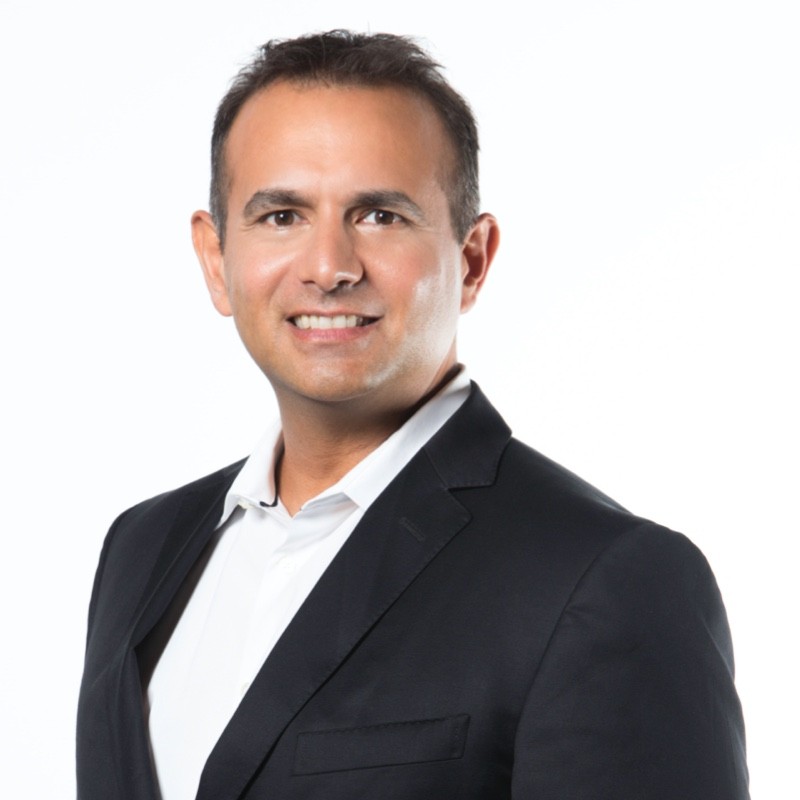Lionheart Landlord Promises to Make Good on $1 Million Donation

Miami real estate mogul Ophir Sternberg cares so much about education that he founded Lionheart Classical Academy in Peterborough, N.H., according to his company biography.
“Sternberg’s dedication to education led him to found The Lionheart Classical Academy, a chartered public school in New Hampshire. He is passionate about providing quality education to young learners. Sternberg’s notable titles and accomplishments, including his commitment to philanthropy through the Lionheart Academy, exemplify his entrepreneurial spirit and dedication to making a positive impact in his community,” the biography states.
But that’s not quite accurate. Sternberg did not found the school alone, and he is not among the handful of dedicated Monadnock area residents who worked together for months to launch the charter school.
Instead, Sternberg is the landlord, the owner of the Sharon Road commercial property Lionheart rents for $38,000 a month. He also has the naming rights for Lionheart, named after his investment firm Lionheart Holdings, a currently publicly traded company. He won the name in exchange for a $1 million pledge that has not gone as planned, so far.
The charter school is pushing back on concerns of financial problems expressed by founder Fred Ward and parent Kevin Brace. The school’s board recently announced a $5 million endowment from an anonymous donor. Additionally, the board says it anticipates an audit report showing it is already on good financial footing, and operating at a surplus of more than $1,000 per student. The board is also denying claims it has met outside posted meetings.
Sternberg’s connection to the school and former Board Chair Barry Tanner are among the issues made public recently. The entrepreneur began contacting the press this week to tell his side of the story in response to inquiries. Sternberg told NHJournal on Wednesday he cares deeply about the school and its mission.
“They are serving a real need for the community,” Sternberg said. “I hear great things about the school and the education the students are receiving there.”
Asked about the “founder” claim, Sternberg said Tanner and other people in the founding set consider him a “founding partner.”
“I was called the founding partner for my contribution to help get the school going,” Sternberg said.
On Saturday, Sternberg provided NHJournal screenshots from several emails in which Tanner thanked Sternberg for his generosity.
“And Ophir, I want to personally thank you for partnering with us, supporting LCA with incredible generosity and friendship,” Tanner wrote in one email about the lease.
Sternberg also said Saturday he would change his company biography to reflect he did not found Lionheart Academy alone.
While Tanner is no longer on the board, he’s the one who negotiated the lease and the naming agreement pledge with Sternberg in 2021. Tanner and Sternberg also attempted to go into business together.
Sternberg acknowledged he and Tanner tried to buy the Hancock Inn in a partnership when the historic bed and breakfast went on the market a couple of years ago. The venture was never disclosed to the Lionheart community, but Sternberg said it had nothing to do with the lease and naming agreement. The Hancock Inn did not come up for sale until a few months after the Lionheart deals were done, he said.
Tanner declined to talk about his one-time potential business partnership with Sternberg when contacted last week. It’s since been learned Lionheart Academy’s board lost all copies of the signed conflict of interest statements board members like Tanner would have signed.
As for the $1 million pledge, Sternberg said the original agreement was for 10 annual payments of $100,000, with the first payment made in 2021. But, the following year, Sternberg and the board agreed to change the donation from cash payments to stock in one of his businesses. The stock, valued at $1 million, would not be accessible by the school for a year. By the time the school could sell the stock last year, it was virtually worthless.
“Publicly traded stock is always speculative,” Sternberg said.
If the company’s fortunes fared better, Lionheart Academy could have ended up with more than $1 million through the stock gift. Sternberg is adamant he will cover the donation balance, though he hasn’t made any more payments yet. The plan for the stock donation always carried his backstop guarantee to pay any difference if the stock was valued at less than $1 million.
The plan right now, Sternberg said, is to renegotiate the Sharon Road lease in order to give the school its donation through lower payments.
Lionheart paid no base rent for most of the first year it leased the building in 2021, only paying $6,600 a month in maintenance expenses and taxes. But starting in the fall of 2022, the school made monthly base payments of $24,000 on top of maintenance and taxes. The base payment has been rising every year as the school expands and it is currently set to go to more than $29,000 a month on Oct. 1, with close to $9,000 more a month in maintenance and taxes.
Lionheart isn’t the only tenant in the Sharon Road property. While the school will pay a total of $15.08 per square foot starting next month, Sternberg acknowledged the other tenant pays about $8 per square foot.
“They’ve been there for many, many years before I got the building,” Sternberg said.
Sternberg lives in Miami, but he spends summers in Peterborough, where he has a second “equestrian” home. Sternberg bought the Sharon Road property a few years ago and has no plans to sell, nor does he intend to give the property to the school where he’s a founding partner. He expressed surprise when asked if he would give the building to the school.
“I put the space up for a lease, and I agreed to make it as long-term as they would want,” Sternberg said.
The rent schedule attached to the lease Sternberg and Tanner signed runs through 2036, when Lionheart will be paying more than $60,000 a month.
But among the concerns Ward has raised is the issue Lionheart Academy is now locked into perpetual fundraising, largely in order to pay large sums of money to founding partner Sternberg.
“I don’t really understand the controversy,” Sternberg said. “There are a few naysayers trying to create some controversy.”





